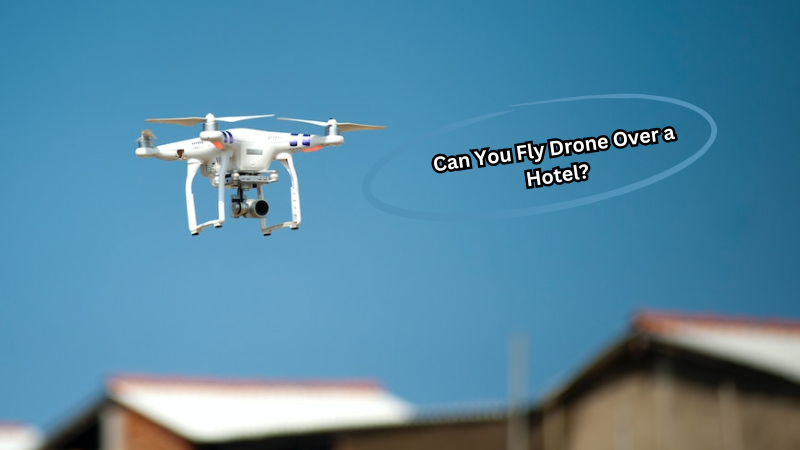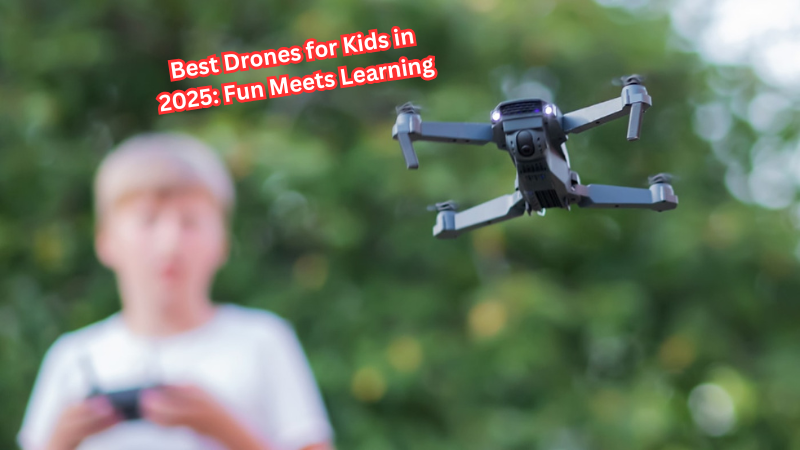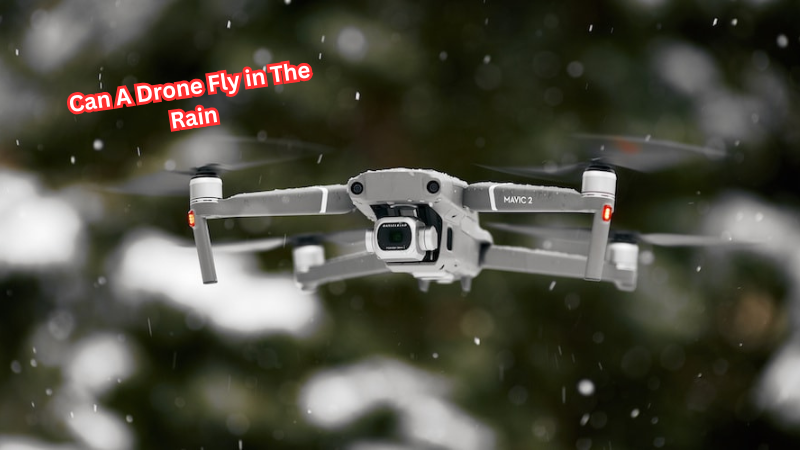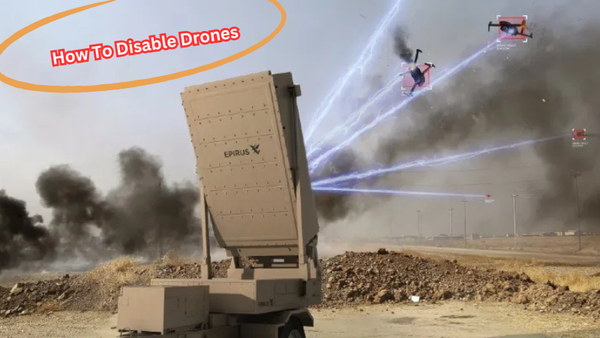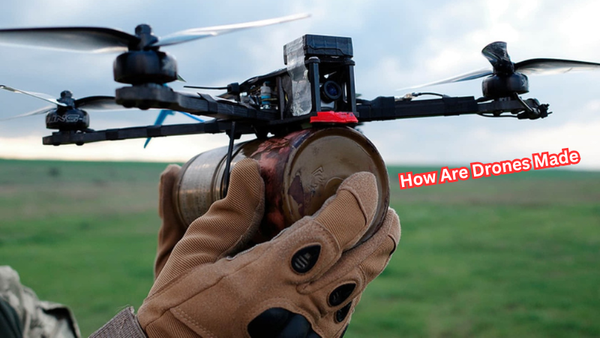Drones have become a staple of modern technology, offering breathtaking aerial views, innovative photography opportunities, and even practical uses like surveillance. However, as their popularity soars, so do questions about where and how they can be used.
One particularly tricky scenario is flying a drone over a hotel. Is it allowed? Is it safe? More importantly, is it ethical? Before taking to the skies, it is crucial to navigate the maze of legal regulations, respect privacy, and follow safety protocols.
Whether you're a drone enthusiast or curious about the rules, understanding these aspects can save you from trouble. This blog dives into everything you need to know to ensure responsible and conflict-free drone usage around hotels.
Understand the Legalities
To answer the question of whether you can fly a drone over a hotel, we need to look at local laws and regulations. In most countries, drones are classified as unmanned aerial vehicles (UAVs) and are subject to airspace restrictions set by aviation authorities. These restrictions apply to all types of flying machines, including commercial airplanes, helicopters, and other aircraft.
In the United States, for instance, the Federal Aviation Administration (FAA) has strict regulations on where drones can be flown. According to their guidelines, recreational drones should not exceed 400 feet above ground level in uncontrolled airspace unless authorized by air traffic control. Additionally, they must remain within visual line-of-sight at all times and not fly over people or restricted airspace.
Similar regulations exist in other countries, with some even requiring drone operators to obtain a license before flying. It's essential to research and adhere to these rules to avoid any legal trouble while operating your drone near a hotel.
Understand Private Property and Drone Usage
Apart from legal restrictions, flying a drone over a hotel also raises questions about privacy and property rights. While it may seem harmless to capture stunning aerial shots of a hotel, it's crucial to respect the privacy of guests and staff.
In most cases, hotels have designated areas where they can take photographs or videos of their premises for marketing purposes. However, these areas are usually limited and do not include guest rooms or other private spaces. Therefore, flying your drone over a hotel without permission is not only unethical but also potentially illegal.
Can You Fly a Drone Over a Hotel?
Now that we have explored the legal and ethical aspects, let's answer the question at hand - can you fly a drone over a hotel? The short answer is yes but with several caveats.
Firstly, you must ensure that you are following all local laws and regulations regarding drone usage. This includes obtaining any necessary permits or licenses and adhering to height and airspace restrictions.
Secondly, it's crucial to respect the privacy of guests and staff by not flying your drone over restricted areas such as guest rooms or private balconies. Lastly, always prioritize safety by maintaining a visual line-of-sight with your drone and avoiding hazardous situations.
Potential Benefits of Flying Drones Over Hotels
While the use of drones in hotels may come with certain limitations and restrictions, there are also many potential benefits to be gained from this technology. Here are just a few examples:
1. Aerial Photography and Videography
Drones offer a unique perspective when it comes to capturing stunning photography and videography for hotels. With their ability to fly at varying heights and angles, they can provide breathtaking aerial shots of the entire property, including pools, gardens, and other amenities. This type of footage is not only visually appealing but can also be used for promotional purposes in hotel marketing efforts.
2. Improved Security
Hotels have strict security measures in place to ensure the safety of their guests and staff. Drones can assist in enhancing this security by providing real-time surveillance footage of the premises from above. This can help identify any potential threats or suspicious activity and allow for a quick response to any security incidents.
3. Inspections and Maintenance
Maintaining a hotel property is no easy task, with numerous areas that require regular inspections and maintenance. Drones equipped with high-resolution cameras can provide a cost-effective way to inspect roofs, gutters, chimneys, and other difficult-to-reach areas without the need for expensive equipment or personnel.
4. Enhanced Guest Experience
Guests are always looking for unique experiences during their stay at a hotel, and drones can offer just that. Some hotels have started to offer drone tours of their property, giving guests a bird's eye view of the surrounding area and attractions. This type of experience can be especially appealing for adventure-seeking travelers.
5. Environmental Conservation
As drones become more advanced, they are also being used for environmental conservation efforts. Hotels located in natural or protected areas can use drones to monitor wildlife, track changes in vegetation, and identify potential threats to the environment. This information can then be used to develop sustainable practices and minimize the hotel's impact on the surrounding ecosystem.
6. Delivery of Goods
With the rise of contactless services, hotels are exploring new ways to deliver goods and services to guests without human interaction. Drones can be utilized for this purpose, delivering food, drinks, and other items directly to a guest's room or designated area on the hotel property.
These are just a few examples of the potential benefits of using drones over hotels. As technology continues to advance, we can expect to see even more innovative ways in which drones can be utilized in the hospitality industry.
Disadvantages and Challenges of Using Drones Over Hotels
While the potential benefits are promising, it's also essential to acknowledge the challenges and disadvantages of using drones in hotels. These include:
1. Limited Battery Life
Most commercial drones have a limited battery life, usually lasting between 20-30 minutes before needing to be recharged. This means that multiple batteries need to be on hand for longer flights, making it challenging to capture extended footage or conduct lengthy inspections.
2. Weather Conditions
Drone operations can be affected by various weather conditions, including strong winds, rain, and extreme temperatures. This can limit their usability in certain situations, especially if they are being used for surveillance or delivery purposes.
3. Privacy Concerns
As mentioned earlier, privacy concerns are a significant issue when it comes to using drones in hotels. While steps can be taken to protect the privacy of guests and staff, there is always a risk of unintentionally capturing sensitive information or footage.
4. Technical Issues
Like any technology, drones can experience technical issues that may disrupt their operation or result in damage or loss. This can cause delays in projects and lead to additional costs for repairs or replacements.
5. Interference with Other Airspace Users
Hotels located near airports or other restricted airspace areas must take extra precautions when flying drones. The potential interference with other airspace users, such as commercial planes or helicopters, could result in serious safety risks.
Despite these challenges, the benefits and potential uses of drones over hotels are continually expanding. As long as regulations and ethical considerations are followed, this technology can offer numerous advantages for the hospitality industry.
Safety Guidelines for Flying Drones Over Hotels
To ensure the safe and responsible use of drones over hotels, there are several guidelines that drone pilots should follow. These include:
- Obtain all necessary permits and licenses from local authorities before flying your drone.
- Familiarize yourself with height and airspace restrictions in the hotel's vicinity.
- Respect privacy by avoiding restricted areas such as guest rooms or private balconies.
- Prioritize safety by maintaining a visual line-of-sight with your drone at all times.
- Conduct thorough pre-flight checks to ensure your drone is functioning correctly.
- Keep a safe distance from people, structures, and other aircraft while flying your drone.
- Monitor weather conditions and avoid flying in adverse weather.
- Have a backup plan in case of technical issues or emergencies.
- Follow all regulations and laws regarding drone operation, including registration requirements.
- Respect the privacy and safety of others by communicating your intentions with hotel staff and guests before flying.
By following these guidelines, drone pilots can ensure the safe and responsible use of this technology in hotels. As with any emerging technology, it's essential to continuously educate oneself on best practices and adapt to any changes in regulations or safety measures.
Alternatives to Flying Over Hotels
While drones offer numerous benefits for hotels, they are not the only method of achieving these goals. Some alternatives to using drones over hotels include:
1. Traditional Photography and Videography
For hotel marketing purposes or inspections that don't require a close-up view, traditional photography and videography may be more suitable than using a drone. This can provide high-quality footage without the potential safety concerns or privacy issues associated with drones.
2. Ground-based Inspections
In cases where a drone's flight time is limited, or weather conditions prevent safe operation, ground-based inspections can be an alternative option. While this may not provide the same vantage point as a drone, it can still gather valuable information and footage.
3. Electric Bicycles for Delivery
Instead of using drones to deliver goods, some hotels have started utilizing electric bicycles for contactless delivery. This can offer a more environmentally friendly option while still minimizing human interaction.
4. Satellite Imagery
In situations where drones are restricted, satellite imagery can provide an alternative means of gathering aerial data. While this may not be as detailed as drone footage, it can still offer valuable insights into the surrounding area.
These alternatives may not offer the same level of convenience or efficiency as using drones over hotels, but they can still achieve similar goals without some of the challenges and limitations associated with drones. As technology continues to advance, we can expect to see even more innovative alternatives emerge in the future.
FAQs
Are drones allowed to fly over a hotel under FAA rules?
Under FAA rules, flying a drone over a hotel is generally allowed, but it depends on the location and purpose. You must ensure compliance with state and local laws, especially if the hotel is within city limits or near restricted areas.
Is it legal to fly a drone from public property like a public sidewalk near a hotel?
Flying a drone from public property, such as a public sidewalk, is generally allowed, but it’s important to respect privacy laws and avoid causing property damage. Always check state and local laws for specific restrictions in city limits.
Do you need permission from a property owner to fly a drone over a hotel?
While permission from the property owner isn’t always required, avoiding privacy violations and property damage is crucial. For commercial purposes, obtaining consent and following FAA rules are highly recommended.
Are there privacy laws and restrictions for flying drones over a hotel?
Yes, privacy laws prohibit invading people's privacy when flying a drone over a hotel. Even if you're a well known member of the drone community, following state and local laws and being mindful of property damage is essential.
Conclusion
Flying a drone over a hotel comes with its share of responsibilities. Understanding the legal landscape is essential, as rules about airspace, permits, and restricted zones vary widely.
Equally important is respecting the privacy of hotel guests and staff—always prioritize ethical considerations to avoid invading personal spaces. While drones can be useful for stunning visuals or security purposes, prior approval from the hotel is a must.
Following safety guidelines, like avoiding crowded areas and maintaining drone visibility, ensures safe operations. By sticking to the rules, respecting privacy, and prioritizing safety, you can enjoy using your drone responsibly. Ethical drone use not only prevents conflicts but also fosters positive experiences for everyone involved.
